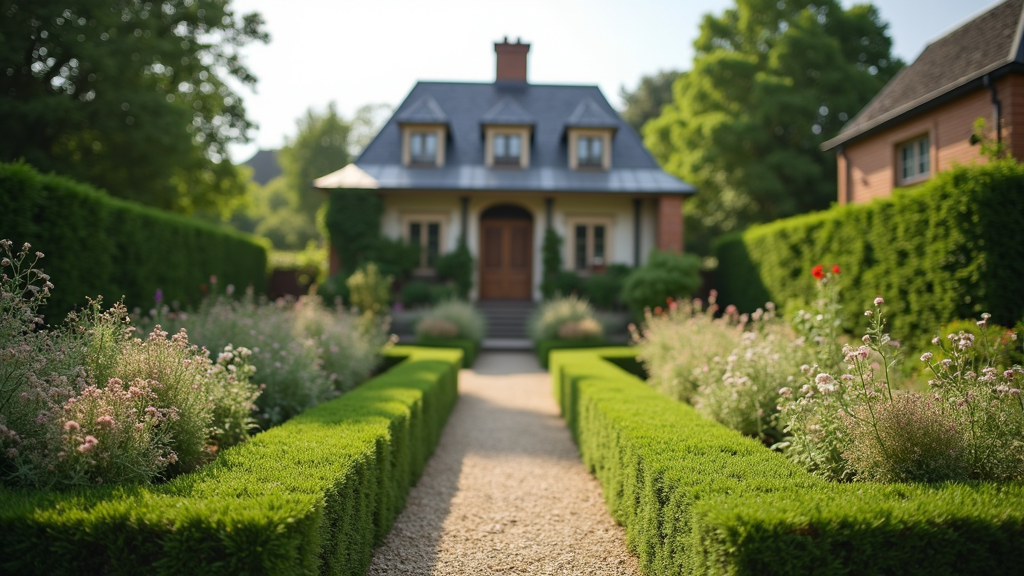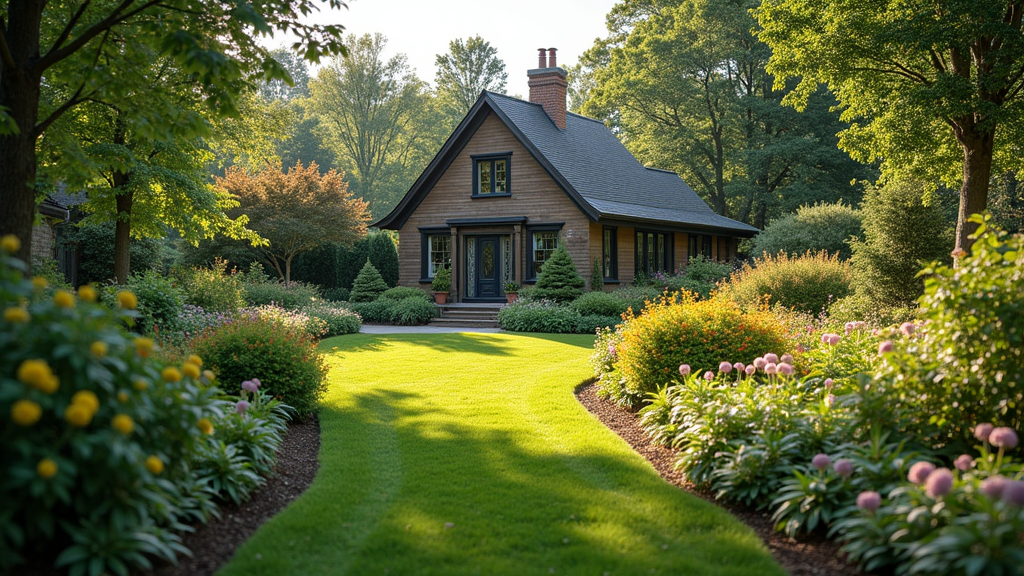Introduction
In the heart of Greensboro, NC, where lush greenery meets urban development, managing water runoff is crucial for maintaining a healthy ecosystem. Rain gardens are an innovative landscaping solution that not only beautifies residential and commercial properties but also effectively addresses the challenges posed by stormwater runoff. This article explores how rain gardens can transform landscapes, enhance biodiversity, and promote sustainable practices in Greensboro.
Rain Gardens: Managing Water Runoff with Smart Landscaping in Greensboro
Rain gardens serve as a natural filter system for stormwater runoff, allowing homeowners and city planners alike to manage excess water more efficiently. But what exactly is a rain garden? Essentially, it’s a shallow depression in the landscape that collects rainwater from impervious surfaces like driveways and rooftops. The collected water then percolates through layers of soil and plants before rejoining the groundwater supply.
What Are Rain Gardens?
A rain garden is designed to capture rainwater runoff from hard surfaces to prevent flooding and erosion. By incorporating native plants that can thrive in both wet and dry conditions, these gardens create a dynamic ecosystem that attracts birds, butterflies, and beneficial insects.
Why Are Rain Gardens Important in Greensboro?
Greensboro experiences varying weather patterns throughout the year, with heavy rains often leading to increased runoff. Rain gardens help mitigate flooding risks while improving water quality by filtering pollutants before they enter local waterways. In addition to environmental benefits, they also offer aesthetic appeal.
The Importance of Smart Landscaping in Greensboro
Understanding Smart Landscaping Practices
Smart landscaping goes beyond aesthetics; it encompasses ecological considerations that contribute to sustainability. Incorporating elements like rain gardens into your landscaping plan can significantly reduce water usage and improve local biodiversity.
How Does Smart Landscaping Benefit Residents?
Reduced Flooding Risks: By absorbing excess rainwater, rain gardens help decrease the likelihood of urban flooding. Water Quality Improvement: They filter pollutants from stormwater before it reaches local streams and rivers. Enhanced Property Value: Well-designed landscapes attract potential buyers and increase property value. Biodiversity Support: Local wildlife benefits from the habitats created by these diverse ecosystems.Designing Your Own Rain Garden in Greensboro
Choosing the Right Location
When planning a rain garden, location is key. Ideally, you’ll want to place your garden at least 10 feet away from your home’s foundation to avoid any potential drainage issues.
Soil Type Considerations for Rain Gardens
Understanding your soil type will significantly impact the success of your rain garden:
- Sandy soils drain quickly but may require deeper roots. Clay soils retain moisture longer but need amendments for better drainage. Loamy soils offer a balance between drainage and retention.
Selecting Native Plants for Your Rain Garden
Native plants are essential as they are adapted to the local climate and require less maintenance:
- Echinacea purpurea (Purple Coneflower) Rudbeckia hirta (Black-eyed Susan) Asclepias tuberosa (Butterfly Weed)
These plants not only thrive in varying moisture levels but also provide food for pollinators.
Maintenance Tips for Your Rain Garden
Regular Inspection of Drainage Areas
Inspecting your rain garden periodically ensures that there are no blockages affecting drainage efficiency.
Weeding Out Invasive Species
Keeping an eye out for invasive plants helps maintain the health of your native plant selections.

Mulching for Moisture Retention
Applying mulch around your plants conserves moisture while suppressing weeds — a win-win!
Cost Factors for Installing Rain Gardens in Greensboro
Initial Investment Estimates
The cost of installing a rain garden can vary greatly depending on size and design complexity:
- Small DIY projects may start around $300. Professional installations can range from $1,000 to $5,000 or more based on features added.
Long-Term Savings Through Reduced Erosion Control Costs
Investing initially can save homeowners money in long-term erosion control measures due to reduced runoff damage.
Community Efforts Supporting Rain Gardening Initiatives in Greensboro
Local Government Programs on Sustainable Landscaping
Greensboro city officials actively promote initiatives aimed at enhancing green spaces through community workshops focused on sustainable landscaping practices.
Collaborative Projects Between Neighbors
Neighborhood associations often join forces to create communal rain gardens that benefit multiple households while fostering community spirit.
FAQs About Rain Gardens
What is a rain garden? A rain garden is a landscaped area designed to collect stormwater runoff from impervious surfaces like roofs or driveways.
How do I know if my yard is suitable for a rain garden? Assess soil drainage capabilities; areas with good drainage but also periodic flooding are ideal candidates.

Do I need a permit to install a rain garden in Greensboro? Most residential installations don’t require permits but checking with local regulations is always wise.
What types of plants should I use? Native plants are recommended as they require less maintenance and support local wildlife.
How often does my rain garden need maintenance? Regular checks every few months should suffice; focus on weeding and ensuring proper drainage channels remain unobstructed.
Can I integrate other landscaping features into my rain garden? Absolutely! Raised beds or decorative stones can enhance aesthetics while supporting functionality.
Conclusion
Creating a vibrant landscape through effective water management techniques like rain gardens showcases smart landscaping practices available right here in Greensboro, NC. Not only do these gardens add beauty to our environment, but they also play an essential role in preserving our natural resources while mitigating flood risks associated with heavy rainfall events common in our region.
http://cruzxjih429.trexgame.net/the-connection-between-landscaping-and-mental-well-beingBy embracing solutions such as “Rain Gardens: Managing Water Runoff with Smart Landscaping in Greensboro,” residents can contribute positively towards creating sustainable communities while enjoying the many benefits these innovative landscapes have to offer!
By implementing these strategies and understanding their benefits fully, we can all be stewards of our environment—one beautiful raindrop at a time!